Гомер: «Илиада» и «Одиссея» [заметки]
1
Samuel Butler, The Authoress of the Odissey: Who and What She Was, When and Where She Wrote [1897], Second Edition With a New Preface by Henry Festing Jones (Jonatan Cape: London, 1922).
2
Gustave Flaubert, «Dictionnaire des idées reçues» in Bovuard et Pécuchet, introduction par Rayond Queneau (Editions du point du Jour: Paris, 1947).
3
Cf. André Gide, Oscar Wilde: In Memoriam (Mercure de France: Paris, 1910).
4
Virginia Woolf, «On Not Knowing Greek» in The Common Reader: First Series (The Hogarth Press, London, 1925).
5
Emanuel Geibel, «Kriegslied» in Heroldsrufe: Zeitgedichte, Gesammelte Werke, Band 4 (Cotta: Stuttgart, 1893).
6
Simone de Beauvoir, La femme rompue (Gallimard: Paris, 1963).
7
«many soul-destroying things / in holded tablets», The Iliad of Homer, translated by T. S. Brandeth, 2 volumes (W. Pickering: London, 1846).
8
«Mucho más que libros», Semana (Bogotá, 4 June, 2001).
9
Илиада, XXIV: 594-599
10
Илиада, XXIV: 613-620
11
Mustafa El-Abbadi, Life and Fate of the Ancient Library of Alexandria (Unesco: Paris, 1990).
12
Геродот, История, II:117
13
Athenaeus, The Deipnosophists, VIII:347e, translated and edited by Charles B. Gulick (W. Heinemann: London, 1950)
14
F. Zeitlin, «Visions and Revisions of Homer» in S. Goldhill, editor, Being Greek under Rome (Cambridge University Press: Cambridge and New York, 2001)
15
Геродот, История, V:58
16
Илиада, VI: 198-199
17
Cf. Bruce Heiden, «The Placement of Book Divisions in the Iliad», in Journal of Hellenic Studies, 1998. Также Minna Skafte Jensen, «Dividing Homer: When and How were the Iliad and the Odissey Divided into Songs?» in Symbolae Osloenses, 1999.
18
Jean Irigoin, «Homere, l'écriture et le livre» in Europe, 79e année, №865 (Paris, May 2001).
19
«Seven cities warred for Homer, being dead, Who, living, had no roof to shroud his head» — Thomas Heywood, The Hierarchy of the Blessed Angells. Their names, orders, and offices; the fall of Lucifer with his angells [1635] (Da Capo Press: New York, 1973).
20
Miguel de Cervantes Saavedra, El Ingenioso Hidalgo Don Quijote de la Manca, II:74 (Edición y notas, Celina S. de Cortázar e Isaías Lerner (editorial Universitaria de Buenos Aires, 1969).
21
«Hymn to Delian Apollo» v.175, in The Homeric Hymns, translated by Jules Cashford with and Introduction and Notes by Nicholas Richardson (Penguin Books: London and New York, 2003).
22
[Thomas Blackwell], An Enquiry into the Life and Writings of Homer, second edition (J. Oswald: London, 1736).
23
Herodotus, Vie d'Homére, mise en français d'Amyot par J.-J. van Dooren (Librarie Ancienne Edouard Champion: Paris, 1926).
24
«Blind Melesigenes thence Homer call'd» — John Milton, Paradise Regained, IV:259.
25
Héraclite, Fragments: Citations et témoignages, traduction et presentation par Jean-Francois Pradeau, 2e edition corrigée (Flammarion: Paris, 2004).
26
Herodotus, Vie d'Homére.
27
[Jean-Francois Pradeau ed.] Héraclite, Fragments: Citations et témoignages.
28
Одиссея, VIII:51-99.
29
Одиссея, VIII:302-410.
30
Одиссея, VIII:552-584.
31
Одиссея, I:178.
32
Одиссея, VIII:87.
33
E. T. «Translator's Note» in The Odyssey of Homer, translated into English prose by T. E. Shaw (Colonel T. E. Lawrence), (Oxford University Press, Galaxy Books: New York, 1956).
34
Albert B. Lord, The Singer of Tales (Harvard University Press: Cambridge, Mass., 1960).
35
Платон, диалог «Ион».
36
Платон, «Ион».
37
Claude Mosseé, La Gréce archaique d'Homére à Eschyle (Editions du Seuil: Paris, 1984).
38
Thomas De Quincey, «Homer and the Homeridae» in The Works of Thomas De Quincey, volume 13, edited by G. Lindop et alt. (Pickering and Chatto: London, 2001).
39
J. M. Foley, Homer's Traditional Art (Penn State University Press: University Park, Penn, 1999).
40
Gilbert Murray, Five Stages of Greek Religion, third edition with a new introduction by the author (Doubleday: New York, 1951).
41
Страбон, «География», 1:73.
42
Аристотель, «Метафизика» B4, 10000a19.
43
Paul Veyne, Les Grees ont-ils cru á leurs mythes? (Editions du Seuil: Paris, 1983).
44
John Burnet, Early Greek Philosophy (Adam and Charles Black: Edinburgh, 1892).
45
Cf. Jacqueline de Romily, La Grèce antique contre la violence (Editions de Fallois: Paris, 2000).
46
Плутарх, «Алкивиад» в «Сравнительных жизнеописаниях».
47
Платон, «Государство», Книга X.
48
Там же.
49
Aldous Huxley, Brave New World (Chatto and Windus: London, 1933).
50
Платон, «Гиппий Меньший».
51
Мигель де Сервантес, «Дон Кихот Ламанчский».
52
Аристотель, «Поэтика», книга IV.
53
Цицерон, «Оратор».
54
John Milton, Areopagitica: A Speech og Mr. John Milton, first published 1644 (G. P. Punam's Song: New York and London, 1938).
55
Страбон, «География», 13.I.45.
56
Irad Malkin, The Returns of Odysseus: Colonization and Etnicity (University of California Press: Berckeley, California, 1998).
57
Илиада, XI:747-753.
58
J. Irgoin, «Les editions des poètes à Alexandrie» in Sciences exactes et sciences appliqués a Alexandrie, Actes du coloque international de St-Etienne (Université de St-Etienne: St-Etienne, 1996).
59
Gregory Nagy, «Aristarchean Questions» in Bryn Mawr Classical Review, VII.14 (Bryn Mawr, PA, 1998).
60
Tomas Hägg, The Novel in Antiquity (University of California Press: Berkley and Los Angeles, 1983).
61
Horace, Epîtres II: 1 «A Auguste» in Oeuvres (Garnier Frères: Paris, 1967).
62
Плиний приписывает эту ремарку своему другу Атилиусу. «A Novius Maximus» Lettres I-IX, [II:14] ed. A. M. Guillemin, 3 vols. (Les Belles Lettres: Paris, 1927–28).
63
Peter Levi, Horace: A Life (Duckworth: London, 1997).
64
Horace, Epîtres II: 1 «A Auguste».
65
Horace, Epîtres I: 2 «A Lollius».
66
Quitilian, The Orator's Education, Book 10, in volume IV, edited and translated by Donald A. Russel (Harvard University Press: Cambridge, Mass. and London, 1970).
67
Илиада, II:819-821.
68
Cf. Claudia Moatti, La Raison de Rome: Naissance de l'esprit critique à la fin de la République (Editions du Seuil: Paris, 1997).
69
Peter Levi, Virgil: His Life and Times (Duckworth: London, 1998).
70
Manuel Sanz Morales, Milógrafos griegos (Akal: Madrid, 2002).
71
Tim Whitmarsh, Ancient Greek Literature (Polity: Cambridge, 2004).
72
Вергилий, «Энеида», VI:847-853 (цитируется в переводе С. Ошерова под ред. Ф. Петровского).
73
Hermann Broch, Der Tod des Vergil [1945] (Rhein Verlag: Zurich, 1958).
74
Энеида, I:283-284.
75
Илиада, XX:210-211.
76
Среди них Стесихор Сицилийский в VI в. до н. э. и Элланикус Лесбосский в V в. до н. э.
77
Cf. Niall Rudd, Introduction to Horace: Satires and Epistles and Persius: Satires (Penguin Books: Harmondsworth, 1973).
78
Lucretius, On the Nature of Things, Introduction by Wendell Clausen, translated by H.A.J. Munro (Washington Square Press: London, 1965).
79
Lewis Carroll, «What the Tortoise said to Achiless» in Mind, April 1895, in The Complete Works of Lewis Carroll (The Nonesuch Press: London, 1922).
80
The Iliads of Homer, Prince of poets, Never Before in Any Language Truly Translated, Done According to the Greek by George Chapman (George Newnes: London and Charles Scribner's Sons: New York, 1904).
81
Англ. цит. по Homer in English, edited with an Introduction and Notes by George Steiner (Penguin Books: London, 1996).
82
Alexandre Pope, The Iliad and The Odyssey of Homer, edited by the Rev. H.F. Cary (George Routledge and Sons: New York, 1872).
83
Англ. цит. по Homer in English.
84
Iliad, in 2 volumes, with an English translation by A.T. Murray (Harvard University Press: Cambridge, Mass., and London, 1924, reprinted 2001).
85
The Iliad: the Story of Achilles, translated by W.H. Rouse (Thomas Nelson and Sons: London, 1938).
86
H.D.F. Kitto, The Greeks (Penguin Books: London, 1951).
87
The Iliad of Homer, translated by Richard Lattimore (Chicago University Press: Chicago, 1951).
88
Robert Lowell, Imitations (Faber and Faber: London, 1962).
89
Juan de Mena, La Ilíada de Homero, Edición crítica de las Sumas de la Yliada de Omero у del original latino reconstruido, acompacada de unglosario latino-romance, por T. González Rolán, María F. del Barrio Vega у A. López Fonseca (Ediciones Clásicas: Madrid, 1996).
90
Homer, Ilias, in der Übertragung von Johann Heinrich Voss, mit einem Nachwort von Utr Schmidt-Berger (Artemis and Winkler: München, 1957).
91
Homère, Iliade, traducion de Leconte de Lisle (Profrance: Paris, 1998).
92
Haroldo do Campos, Homero, Ilíada, Introduçao e organizaçao Trajano Vieira (Editora Arx: Sao Paulo, 2001).
93
Juan Valera у Alcabá Galiano, Cartas dirigadas al Sr. D. Francisco de Paula Canalejas (Revista Ibérica: Madrid, 1864).
94
Одиссея, XI:555-558.
95
Nancy Sherman, Stoic Warriors: The Ancient Philosophy Behind the Military Mind (Oxford University Press: Oxford and New York, 2005).
96
Stendal, La Chartreuse de Parme, II:18 (Le Divan: Paris, 1927).
97
Giacomo Leopardi, Zibaldone di pensieri, vol. I §289 (Mondadori: Milan, 1997).
98
Энеида, VXII:837-839 (прим. пер. — имеется ввиду смесь итальянской и троянской крови: ср. англ, перевод С. Д. Льюиса):
Virgil, Aeneid, I:847-853, A New Verse Translation by C. Day Lewis (Oxford University Press: Oxford, 1952).
99
J. Steinman, Saint Jerome (Editions du Cerf: Paris, 1958).
100
«Ибо где сокровище ваше, там будет и сердце ваше».
Евангелие от Матфея 6:21
101
Saint Jerome, «Letter to Eutochium on Guarding Virginity» in The Collected Works of Erasmus, volume 61, «Patristic Scholarship: The Edition of St. Jerome», edited, translated and annotated by James F. Brady and John C. Olin (University of Toronto Press: Toronto, Buffalo, London, 1992).
102
Saint Jerome, «Letter to Magnus, Roman Orator» in The Collected Works of Erasmus, volume 61.
103
Erasmus, «Life of Jerome» in The Collected Works of Erasmus, volume 61.
104
Августин Блаженный, «Исповедь», книга I:13.
105
Августин Блаженный, «Исповедь», книга I:13.
106
Horace, Epîtres I:2 «A Lollius» in Oeuvres (Garnier Fréres: Paris, 1967).
107
Августин Блаженный, «О граде Божьем», книга I:3.
108
Августин Блаженный, «Исповедь», книга I:13 и 16.
109
(пер. на англ. — А. Мангель)
Heinrich Heine, Sämtliche Werke, zweiter Band, Herausgegeben von Prof. Dr. Ernst Elster (Mayers Klassiker-Ausgaben: Leipzig und Wien, 1890)
110
James J. O'Donnel, Cassiodorus, (University of California Press: Berckeley, 1979).
111
Edward Gibbon, The Decline and Fall of the Roman Empire, volume III: 53 (Random House: New York, 1983).
112
Michel Psellus, Fourteen Byzantine Rulers (The Chronographia), Book VI, translated, with an introduction, by E.R.A. Sewter (Penguin Books: London, 1966).
113
William V. Harris, Ancient Literacy (Harvard University Press: Cambridge, Massachussets and London, 1989).
114
Цит. по William V. Harris, Ancient Literacy.
115
J.M. Wallace-Hadrill, The Barbarian West: A.D. 400–1000, The Early Middle Ages, revised edition (Harper and Brothers: New York, 1962).
116
Armando Petrucci, «La concezione Cristiana del libro fra VI e VII secolo», in Libri e lettori nel medioevo: Guida storica e critica, a cura di Gugliermo Cavallo (Laterza: Roma, 1989).
117
Venetus Marcianus: Facsimile of the Codex, with a Preface by John Williams White and an Introduction by Thomas W. Allen (Archeological Institute of America: Boston, Mass., 1902).
118
Одиссея, XI:138-143.
119
Cf. Alan James, Introduction to Quintus of Smyrna, The Trojan Epic: Posthomerica (Johns Hopkins University Press: Baltimore and London, 2004).
120
Quintus of Smyrna, The Trojan Epic: Posthomerica, translated and edited by Alan James.
121
Сведения о Дикте и Даресе почерпнуты из The Trojan War: The Chronicles of Dictys of Crete and Dares the Phrygian, translated with Introduction and Notes by R.M. Frazer, Fr. (Indiana University Press: Bloomington and London, 1966).
122
Benoît de Sainte-Maure, Le Roman de Troie, extraits du manuscript Milan, Bibliothèque et Françoise Viellard (Lettres Gothiques, Librairie Génerale Française: Paris, 1998).
123
John Lydgate, The Troy Book ([1412–1420] edited by Robert R. Edwards (Western Michigan University: Kalamazoo, 1998).
124
Geoffrey Chaucer, Troilus and Criseyde (c. 1385] in Complete works, edited from numerous manuscripts by Walter W. Skeat (Oxford University Press: Oxford and London, 1912).
125
Robert Henryson, The Testament of Cresseid [c. 1500] edited by Hugh MacDiarmid (Penguin Books: London and New York, 1989).
126
William Caxton, Recuyell of the Histoyes of Troye (1474) edited with a critical introduction, index and glossary by H.O. Sommer, 2 volumes (D. Nutt: London, 1894).
127
Ben Jonson, «to the Memory of My Beloved, the Author, Mr. William Shakespeare», in Complete Works, edited by P. Simpson and E. Simpson (Oxford University Press: Oxford and London, 1986).
128
William Shakespeare, Troilus and Cressida (1609] in Complete Works, edited by W.J. Craig (Oxford University Press: Oxford, London, New York and Toronto, 1969).
129
Lakhdar Souami, «Presentation», in Jahiz, Le cadi et la mouche: Antologie du Livre des Animaux (Sindbad: Paris, 1988).
130
Mas’udi, Muruj al-Dhahab, цит. по Houari Touati, Larmoire a sagesse: bibliotheques et collections en Islam (Aubier: Paris, 2003).
131
История рассказана учёным X века Ибн аль-Надимом в его книге аль-Фихрист, цит. по Johannes Pedersen, The Arabic Book, translated by Geoffrey French (Princeton University Press: Princeton, N.J., 1984).
132
«размышления на смертном одре» ассоциируются с wasaya («заветом»), жанром исламской средневековой литературы. Cf. Juan Vernet, Lo que Europa debe al Islam de Espaca (El Acantilado: Barcelona, 1999).
133
Jörg Kraemer, «Arabische Homerverse» in Zeitschrift der Deutschen Morgenländischen Gesellschaft, Band 106, Heft 2 (Kommissionverlag Franz Steiner: Wiesbaden, 1956).
134
Patricia Crone, Medieval Islamic Political Thought, chapter XIV (Edinburgh University Press: Edinburgh, 2004).
135
Cf. Robert Irwin, Night and Horses and the Desert: An Anthology of Classical Arabic Literature (Allen Lane: London, 1999).
136
Anonymous, The Subtle Ruse: The Book of Arabic Wisdom and Guile, translated by René Khawam (London, 1976), цит. в Robert Irwin, Night and the Desert.
137
A.I. Sabra, «The Appropriation and Subsequent Naturalization of Greek Science in Medieval Islam: a Preliminary Statement», in The History of Science, Vol. 25 (1987), цит. в Patricia Crone, Medieval Islamic Political Thought.
138
Wilhelm Grimm, «Die Sage von Polyphemus in Iceland», цит. по William Hasen, Ariadne's Thread: A Guide to International Tales Found in Classical Literature (Cornell University Press: Ithaca and London, 2002).
139
Donald K. Fry, «Polyphemus in Iceland», in The Fourteen Century, Acta IV, 1977, quoted by Hermann Pálsson, «Eglis Saga Einhenda ok Esmundar Berserjabana» in Dictionary of the Middle Ages, volume 4, Joseph R. Stayer editor (Charles Scriber's Sons: New York, 1989).
140
F. Gabrieli, «The transmission of Learning and Literary Influences to Western Europe» in The Cambridge History of Islam (Cambridge University Press: Cambridge, 1970).
141
Juan de Mena, «Proemio», La Iliada de Homero.
142
Цит. по E.R. Curtis, Europäishe Literatur und Lateinischen Mittelalter, XI (A. Francke AG: Bern, 1948).
143
Francesco Petrarca, Familiarum rerum, edited by V. Rossi, (Florence, 1937).
144
Данте Алигьери, «Божественная комедия», Ад, IV:80-89.
145
Илиада, I:197.
146
Cf. Robin Lane Fox, Pagans and Christians in the Mediterranean World from the Second Century A.D. to the Conversion of Constantine (Alfred A. Knopf: New York, 1986).
147
Seneca, «On the Shortness of Life» in The Stoic Philosophy of Seneca, translated with an Introduction by Moses Hadas (Doubleday and Co: Garden City, New York, 1958).
148
Albertino Mussato, Historia Augusta de gestis Henrici VII, цит. по Cristophe Carraud, Petrarque, La vie solitaire, preface de Nicholas Mann, introduction, traduction et notes de Christophe Carraud (Jerome Millon: Grenoble, 1999).
149
Francesco Petrarca, Secretum meum in Prose, edited by Guido Martellotti et al. (R. Ricciardi: Milano, 1955).
150
Божественная комедия. Ад, II:7-9 (цитируется в пер. М.Л. Лозинского).
151
Энеида, I:8.
152
Божественная комедия, Ад, II:7-9.
153
Jean-Christophe Saladin, La Bataille du grec à la Renaissance, 2e triage revu et соrrigé (Les Belles Lettres: Paris, 2000).
154
Francesco Petrarca, Familiarum rerum, XVIII:2.
155
Jacob Burkhart, The Civilization of the Renaissance in Italy, translated by S.G.C. Middlemore (Random House: New York, 1954).
156
George Steiner, «Introduction» to Homer in English.
157
Одиссея, X:490-493 и 501-502.
158
Одиссея, X:553-595.
159
Одиссея, XI.
160
Одиссея, XXIV:11-14.
161
Pindar, fragment 129.
162
Одиссея, XI:488-491.
163
Одиссея, XI:37-43.
164
Одиссея, XI:632-633.
165
Jean le Fèvre исп. выраж. danse macabré впервые в 1376 г. в стихотворении Le resit de la mort. Cf. Paul Binski, Medieval Death: Ritual and Representation (Cornell University press, Ithaca N.Y., 1996).
166
Hellmut Rosenfeld, Der mittelaltische Totentanz, (Böh lau Verlag: Wien, 1954).
167
Илиада, VI:146-149.
168
Энеида, VI:306-314.
169
Божественная Комедия, Ад, II:112-114.
170
André Malraux, La voie royale (Bernard Grasset: Paris, 1930).
171
Cf. Eugenio N. Frontiga «Canto III: The Gate of Hell» in Lectura Dantis: Inferno, edited by Allen Mandelbaum, Anthony Oldcorn and Carles Ross (University of California Press: Berckeley, 1998).
172
Потерянный Рай, I:302 (в пер. А. Штейнберга).
173
Перевод Ксении Рагозиной. Paul Verlain, «Chanson d'Automne».
174
Gerald Manley Hopkins, «Spring and Fall» in Poems and Prose of Gerald Manley Hopkins, selected with and introduction and notes by W.H. Gardner (Penguin Books: Harmondworth, 1953)
175
Данте Алигьери, Le Opere di Dante. Testo critico della Societa Dantesca Italiana, ed. M. Barbi et al. (Societa Dantesca Italiana: Milano, 1921/22).
176
Экклезиаст, I:4.
177
Перевод Лидии Кисляковой. Percy Bysshe Shelley, Ode to Naples I:1.
178
Об этом пишут: Е. Auerbach «Dante als Dichter der irdishen Welt (De Gruyter: Berlin, 1969); а также C.S. Singleton Introduction to The Divine Comedy (Routledge and Kegan Paul: London, 1971-75).
179
Claude Fauriel, Dante et les origins de la langue et de la litterature italiennes: Cours faits a la Faculte de letters de Paris (Jules Mohl: Paris, 1854).
180
Божественная Комедия, Ад, IV:143-144.
181
Божественная Комедия, Ад, IV:76-78.
182
Божественная Комедия, Ад. IV:37-39.
183
John Pope-Hennesy, The Portrait in the Renaissance (Princeton University Press: Princeton, N. J., 1979).
184
Рафаэль завершил роспись этой комнаты в 1511 году. Cf. Jean-Pierre Cuzin, Raphael, vie et oeuvre (Biblioteque desarts: Paris, 1983).
185
Susy Marcon and Marino Zorzi, ed., Aldo Manuzio e l'ambiente veneziano 1494—1515 (Il Cardo: Venezia, 1994).
186
Vespasiano da Bisticci, Vite di uomini illustri, ed. P. d'Ancona e E. Aeshclimann (Arnoldo Mondadori: Milano, 1951).
187
Leonardo Bruni, «The study of Literature», §20, in Humanist Educational Treatises, edited and translated by Craig W. Kallendorf (Harvard University Press: Cambridge, Mass. and London, 2002).
188
Battista Guarino, «А Program of Teaching and Learning» §19 in Humanist Educational Treatises.
189
Aeneas Silvius Piccolomini, «The Education of Boys» §33 in Humanist Educational Treatises.
190
Francisco Bethencourt, «А fundaçro» in Historia das Inquisiçxes: Portugal, Espahna e Itália, seculos XV-XIX (Companhia das Letras: São Paulo, 2000).
191
J.N.D. Kelly, The Oxford Dictionary of Popes (Oxford University Press: Oxford and New York, 1988).
192
Jean-Christophe Saladin provides a break-down of his terms by author in La Bataille du grec à la Renaissance.
193
Цитировано по Jean-Christophe Saladin, La Bataille du grec à la Renaissance.
194
Neil Kent, The Soul of the North: A Social, architectural and Cultural History of the Nordic Countries, 1700—1940 (Reaction Books: London, 2000).
195
Pedro Mexía, Silva de varia lección, edición de Isaías Lerner (Editorial Castalia: Madrid, 2003).
196
Isaías Lerner, «Prólogo» a Pedro Mexía, Silva de varia lección.
197
Francisco de Quevedo, Las zahbro Platón, цитировано по Raimundo Lida, Prosas de Quevedo.
198
Francisco de Quevedo, Defensa de Epicure, цитировано по Raimundo Lida, Prosas de Quevedo.
199
Cf. Octavio Paz, Sor Juana Inés de la Cruz, о Las trampas de la fe (Fondo de Cultura Economica: Mexico, 1988).
200
Sor Juana Inés de la Cruz, «Еl Sueco» in Antología Роétiса, selección e introducción Jоsé Miguel Oviedo (Alianza: Madrid, 2004).
201
Francis Bacon, «De sapientia Veterum» [1609] — «The Wisdom of the ancients» [1619] in Bacon's Essays including his Moral and Historical Works (Frederick Warne and Co.: London and New York, 1982).
202
Michel de Montaigne, Les Essais, II:36 dans Collection de moralists français, publié avac des commentaries par Amaury Duval, vol. IV (Chez Chassériau: Paris, 1822).
203
Charles Perrault, Parallèle des anciens et des modemes [1688—1697] (Slatkine: Geneva, 1971).
204
Илиада, XI:558.
205
Речь идёт о царственной Навсикае, дочери правителя Алкиноя: Одиссея, VI:57-58.
206
Charles-Augustin Saint-Beuve, Reflexions sur les letters (Plon: Paris, 1941).
207
Jean Racine, «Remarques sur l'Odysée» in Ouevres completes, tome II: VI, 2, presentation, notes et commentaries par Raymond Picard (Gallimard: Paris, 1950).
208
Louis Racine, «Мémories contenant quelques particularités sur la vie et les outrages de Jean Racine», in Ouevres completes, tome I.
209
Charles-Augustin Saint-Beuve, Port-Royal, vol. I:11 [1867] (Gallimard: Paris, 1954—55).
210
Blaise Pascal, Pensées, II:XIV: 11, nouvelle edition revue avec soin (Imprimerie d'Auguste Delalain: Paris, 1820).
211
Илиада, VI:486-489.
212
Jean Racine, Andromaque, I:1 in Oeuvres completes, tome I.
213
Raymond Picard, introduction a Jean Racine, Andromaque, in Oeuvres completes, tome I.
214
Jean-Pierre Vernant, «Catégories de I’agent et de Taction en Grèce ancienne» in Religions, histories, raisons (François Maspero: Paris, 1979).
215
Одиссея, XII:255-259/
216
Одиссея, XII:338.
217
Aldous Huxley, «Tragedy and the Whole Truth» in The Complete Essays, vol. III, 1930—1935, edited with commentary by Robert S. Baker and James Sexton (Ivan R. Dee: Chicago, 2001).
218
Jean Racine, Andromaque, V:3 in Oeuvres completes, tome I.
219
Одиссея, V:394-396.
220
Одиссея, V:432-435.
221
Одиссея, V:445-450.
222
Jean Racine, Remarques sur l'Odysée».
223
Anna Dacier, Des causes de la corrupcion du goût [1714] (Sladkine: Geneve, 1970).
224
Jean-Robert Armogathe, Le Quiétisme (Presses Universitaires de France: Paris, 1973).
225
François de Fénelon, Explication des maxims des saints, in Ouevres, 2 volumes (Gallimard: Paris, 1997).
226
François de Fénelon, Les Aventures de Telemaque, in Ouevres.
227
James Herbert Davis, Jr., Fénelon (Twayne: Boston, 1979).
228
Montesquieu, Lettres persanes, XXXVI. Etablissement du texte, preface, chronologie, bibliographic et notes par Laurent Versini (GF-Flammarion: Paris, 1995).
229
Baron Fréderic-Melchior Grimm, «Lettre du ler juin 1957», in Correspondance littéraire, II [1820] (Mercure de France: Paris, 2001).
230
Всю информацию о картине автор почерпнул в книге Simon Schama, Rembrandt's Eyes (Alfred A. Knopf: New York, 1999).
231
Julius S. Held, «Rembrandt's Aristotle» in Rembrandt Studies (Princeton, 1991), цит. по Schama.
232
Плутарх, «Сравнительные жизнеописания», том II.
233
Sir Philip Sydney, The Defence o Poesy [1595] in The Renaissance in England, edited by H. E. Rowlands and H. Baker (D. C. Heath: Lexington, Mass., 1954).
234
Sir Francis Bacon, The Advancement of Learning [1605] edited by Michael Kiernan (Oxford University Press: Oxford and New York, 2000).
235
T. S. Eliot, «Poetry in the Eighteenth Century» in The Pelican Guide to English Literature, volume 4, edited by Boris Ford (Penguin Books: Harmondsworth, Middlesex, 1957).
236
Alexander Pope, The Iliad and the Odyssey of Homer, edited by the Rev. H. F. Cary (George Routledge and Sons: New York, 1872).
237
Richard Outram, private correspondence.
238
Edward Gibbon, Memoirs of My Life, edited by Betty Radice (Penguin Books: Harmondsworth, Middlesex, 1998).
239
Samuel Johnson, «Pope» in Lives of the English Poets [1779—1781], volume II, with an introduction be Arthur Waugh (Oxford University Press: Oxford and London, 1912).
240
Henry Fielding, «А Journey from This World to the Next» [1743] in The Complete Works of Henry Fielding, Esq. with an Essay on the Life, Genius and Achievement of the Author, by William Ernest Henley (William Heinemann: London, 1903).
241
William Hazlitt, Lectures on English Poets in Selected Essays, edited by Geoffrey Keynes (The Nonesuch Press: London, 1946).
242
Leslie Stephen, Pope (Macmillian and Co.: London, 1909).
243
Alexander Pope, The Iliad and the Odyssey of Homer.
244
Jorge Luis Borges, «Las versiones homéricas», in Discusion (Manuel Gleizer: Buenos Aires, 1932).
245
На русском языке «Илиада» печатается почти исключительно в переводе Гнедича, «Одиссея» — в переводе Жуковского. Но есть и другие: в начале XX века обе поэмы были переведены Викентием Вересаевым, а впервые фрагменты «Илиады» перевёл на русский не кто иной, как М. В. Ломоносов. (Прим. перев.)
246
Samuel Johnson, «Pope» in Lives of the English Poets.
247
William Cowper, Table Talk, I: 656 (John Sharp: London, 1825).
248
Homer in English, Edited with an Introduction and Notes by George Steiner (Penguin Books: London, 1996).
249
Mattew Arnold, On Translating Homer (Smith, Elder & Co.: London, 1896).
250
Ibid.
251
Ibid.
252
Ibid.
253
A. E. Housman, «Introductory Lecture» [1982] in The Name and Nature of Poetry and Other Selected Prose, edited by John Carter (Cambridge University Press: Cambridge and London, 1961).
254
John Keats, «Letter to Benjamin Bailey», 18 July 1818, in The Complete Works of John Keats, volume IV edited by H. Buxton Forman (Gowards & Gray: Glasgow, 1901).
255
«Сонет, написанный после прочтения Гомера в переводе Чепмена», перевод Игнатия Ивановского. John Keats, On First Looking into Chapman's Homer.
256
The Iliads of Homer, Prince of Poets, Never Before in any Language Truly Translated, Done According to the Greek by George Chapman (George Newnes: London, 1904).
257
William Blake, «On Virgil» in The Complete Writings of William Blake, edited by Geoffrey Keynes (London and New York, 1957).
258
William Blake, «Preface» to Milton: A Poem in 2 Books to Justify the Ways of God to Man, in The Complete Poems, edited by Alicia Ostriker (Penguin Books: London and New York, 1977).
259
William Blake, «On Homer's Poetry» in The Complete Writings of William Blake.
260
William Blake, «Letter to the Rvd. Dr. Trusler, 23 August 1799», The Poetry and Prose of William Blake, edited by David V. Erdman, commentary by Harold Bloom (Doubleday & Co.: Garden City, New York, 1956).
261
William Blake, «On Boyd» in The Complete Writings of William Blake.
262
William Blake, «On Dante» in The Complete Writings of William Blake.
263
The Illuminated Blake, edited by David V. Erdman, (Doubleday & Co.: Garden City, New York, 1974).
264
Cf. William Blake, «The Marriage of Heaven and Hell: The Voice of the Devil», in William Blake, «On Boyd» in The Complete Writings of William Blake.
265
William Blake, «Public Address, pp. 60 and 20», The Poetry and The Prose of William Blake.
266
Lord Byron, «Letter to Octavius Gilchrist, 15 September 1821» in Byron: A Self-Portrait: Letters and Diaries, 1789—1824, edited by Peter Quennell, 2 volumes (Scribner's: New York, 1950).
267
Lord Byron, «Letter to John Murray, 17 September 1817» Byron: Self-Portrait.
268
John Stuart Mill, «Notes on Some of the More Popular Dialogues of Plato» in The Collected works of John Stuart Mill, edited by J.M. Robinson, volume XI (Toronto University Press: Toronto, 1978).
269
Percy Bysse Shelley, «А Defence of Poetry» in Essays and Letters, edited by Ernest Rhys (Walter Scott: London, 1887).
270
Herbert Read, Byron (Longmarks, Green & Co.: London, 1951).
271
Джордж Гордом Байрон, «Дон Жуан», VII:80-81 (цитируется в переводе Т. Гнедича).
272
Дон Жуан, VII:78.
273
Дон Жуан, VIII:9.
274
Одиссея, IV:538.
275
Одиссея, II:1.
276
Jorge Lois Borges, «Las versions homericas» in Discusion.
277
The Odyssey [1961] and The Iliad [1974] translated by Robert Fitzgerald (Farrar, Straus and Giroux: New York, 2004).
278
Илиада, XVI:346-350 и 606-607.
279
Илиада, XVI:352-356.
280
«The Assyrian came down like the wolf on the fold…» Lord Byron, The destruction of Sennacherib.
281
Enrique Banchs «El Tigre» in La urna [1911], перевод Лидии Кисляковой.
282
Ogdon Nash, «Very Like a Whale» in Selected Verse, перевод Лидии Кисляковой.
283
Madame de Stael, De la literature consideree dans ses rapports avec les institutions sociales [1800] ed. P. van Tieghan, 2 volumes (Geneva and Paris, 1959).
284
Donald Phillip Verene, Vico's Science of Imagination (Cornel University Press: Ithaca and London, 1982).
285
Giambattista Vico, La scienza nuova §819 (Torinese: Torino, 1952).
286
Richard Ellman, James Joyce, new and revised edition (Oxford University Press: Oxford and New York, 1982).
287
Илиада, II:484-493.
288
Donald Phillip Verene, Vico's Science of Imagination.
289
Giambattista Vico, La scienza nuova §873.
290
Ulrich Joost, «Friedrich August Wolf» in Walter Killy, Literature Lexicon, Band XII (Bertelsmann: München, 1992).
291
Johann Joachim Winkelmann, Gedanken über die Nachahmung der griechischen Werke in der Malerei und Bildhauerkunst [1755] (Philipp Reclam: Stuttgart, 1995).
292
Denis Diderot, «Salon de 1767» in Oeuvres completes, annotees par J. Assezat et M. Tourneux (Gamier freres: Paris, 1875—1879).
293
Cf. Grecs (philosophic des) in L'Ecyclopedie de Diderot et d'Alembert, edition facsimile (Franco Maria Ricci: Milano, 1977—78).
294
Cicéron, L'Orateur: Du meilleur genre d'orateurs, 11:62.
295
Johann Peter Eckermann, Gesprache mit Goethe in den letzten Jahren seines Lebens [1837—1848] Herausgegeben von Fritz Bergemann, 2 Bande (Stihrkamp Verlag: Frankfurt-am-Main, 1981).
296
J.W. von Goethe, «Brief an Schiller», 17 mai 1795, in Werke, Band 2, textkritisch durchgesehen von Erich Trunz (C.H. Beck: München, 1981).
297
J.W. von Goethe, «Brief an Schiller», 27 December 1797, in Werke, Band 2.
298
J.W. von Goethe, «Brief an Humbolt», 26 Mai 1799, in Werke, Band 2.
299
Кроме того, и многие другие: Herder's Auch eine Philosophic der Geschichte zur Bildung der Menschheit (1774), Alteste Urkunde des Menschengeschlechts (1774), Ideen zur Philosophie der Menschheit (1784—91) etc., Wieland's Geschichtedes Agaton (1766—67), Die Abderiten (1774), Neue Götter-Gesprache (1791) etc., Heinse's Ardinghello (1789), Schlegel's Über die Diotima (1795), Über das Studium der griechischen poesie (1797), Die Griechen und Rõmer (1798) etc., Karl Philipp Moritz, Götterlehre (1791), Hölderlin Hyperion (1797—99), Empedocles (1797—1800) etc.
300
Cf. E.R. Curtis, Europäische Literatur und Lateinishen Mittelalter XVIII (A. Francke AG: Bern, 1948).
301
J.W. von Goete, «Der ewige Jude» in Goethes Poetische Werke, Band 2 (J.G. Cotta'sche Buchhandlung Nachfolger: Stuttgart, 1950—1954).
302
E.R. Curtis, Europäische Literatur und Lateinishen Mittelalter, I.
303
Nicholas Boyle, Goethe, the Poet and the Age, vol. I «The poetry of Desire».
304
J.W. von Goethe, Die Leiden des Jungen Werher, I, in Werke, Band 6, textkritisch durchgesehen von Erich Trunz und kommentiert von Benno von Wiese (C.H. Beck: München, 1981).
305
Friedrich Schiller, «Über naive und sentimentalische Dichtung» in Schillers Werke, herausgegeben von Ludwig Bellermann, Achter Band (Bibliographisches Institut: Leipzig und Wien, 1905).
306
Carl Gustav Jung, Schiller's ideals on the Type Problem in Psychological Types, a Revision by R.F.C. Hull of the Translation by H.G. Baynes, Volume 6 of the Collected Works (Princeton University Press: Princeton, N. J., 1971).
307
Friedrich Schiller, «Über naive und sentimentalische Dichtung».
308
Цит. по David Luke's Introduction to Goethe, Faust Part II, translated by David Luke (Oxford University Press: Oxford and New York, 1994).
309
Илиада, II:177-178.
310
Iliad, III:219 [цит. по англоязычной версии Р. Фаглза, перевод на русский Лидии Кисляковой].
311
Илиада, III:156-158.
312
Илиада, VI:357-358.
313
Christopher Marlowe, Doctor Faustus (1588?, first published 1604), lines 62-63, in The Plays of Christopher Marlowe (Oxford University Press: Oxford and New York, 1939).
314
Christopher Marlowe, Doctor Faustus, lines 1354-65.
315
Илиада, III:158.
316
Перевод В. Я. Брюсова. (Edgar Alan Рое, «То Helen», 1848).
317
Илиада, III:164-165.
318
J.W. von Goethe, Faust Part II, lines 8838-8840.
319
J.W. von Goethe, Faust Part II, line 6197.
320
J.W von Goethe, Die Leiden des Jungen Werther, I.
321
J.W von Goethe, Dichtung und Wahrheit in Werke, Band 9, textkritisch durchgesehen von Liselotte Blumenthal und kommentiert von Erich Trunz (C.H. Beck: München, 1981).
322
Friedrich Nietzsche, «What I Owe to the Ancients» 2, in Twillight of the Gods, in The Portable Nietzsche, edited and translated by Walter Kaufman (Penguin Books: Harmondsworth, Middlesex, 1954).
323
Friedrich Nietzsche, «Homer und die klassische Philologie» in Werke in drei Banden, herausgegeben von Karl Schlechta (Carl Hanser Verlag: München, 1973).
324
Friedrich Nietzsche, «Homer Contest» in The Portable Nietzsche.
325
Friedrich Nietzsche, Birth of Tragedy Out of the Spirit of Music, translated by Shaun Whiteside, edited by Michael Tanner, new revised edition (Penguin Books; London and New York, 2003).
326
Friedrich Nietzsche, Birth of Tragedy.
327
Leslie Chamberlain, Nietzsche in Turin (Quartet Books: London, 1996).
328
Sigmund Freud, «Our Attitude Towards War» in Civilization, Society and Religion, Group Psychology, Civilization and its Discontents and Other Works, translated from the German under the general editorship of James Strachey (Penguin Books: Harmondsworth, Middlesex, 1958).
329
Peter Gay, Freud: A Life for Our Time (W.W. Norton and Co.: New York and London, 1988).
330
Одиссея, XI:484-486.
331
Илиада, XXI:110-113.
332
Peter Gay, Freud: A Life for Our Time.
333
Цит. по: Peter Gay, Freud: A Life for Our Time.
334
Peter Gay, Freud: A Life for Our Time.
335
Sigmund Freud, «Our Attitude Towards War».
336
Sigmund Freud, «Moses and Monotheism» [1939] in The Origins of Religion translated from the German under the general editorship of James Strachey (Penguin Books: Harmondsworth, Middlesex, 1985).
337
Bruno Bettelheim, Freud and Man's Soul (Alfred A. Knopf: New York, 1983).
338
Carl Gustav Jung, «On the Relation of Analytical Psychology to Poetry» in The Spirit in Man, Art and Literature, translated by H.G. Baynes (Princeton University Press: Princeton, 1966).
339
Илиада, XXIV:592-595.
340
Перевод Лидии Кисляковой (Rupert Brook, The Collected Poems).
341
Heinrich Schliemann, Troy and Its Remains: A Narrative of Researches and Discoveries Made on the Site of Illium and in the Trojan Plain, edited by Philip Smith [translated by L. Dora Schmitz, 1875] (Arno Press: New York, 1976).
342
Ibid.
343
Michael Wood, In Search of the Trojan War (BBc Books: London, 1985).
344
Ibid.
345
Ibid.
346
Цит. по: Philip Smith's Introduction to Heinrich Schliemann, Troy and Its Remains.
347
Samuel Butler, The Authoress of the Odyssey: Who and What She Was, When and Where She Wrote [1897], Second Edition With a New Preface by Henry Festing Jones (Jonathan Cape: London, 1922).
348
Ibid.
349
Одиссея, IX:21-26.
350
Robert Bittlestone, Odysseus Unbond: The Search for Homer's Ithaca (Cambridge, Massachusetts and London, 2006).
351
Samuel Butler, The Authoress of the Odyssey.
352
Moses Finley, The World of Odysseus [1956] {Pelican Books: Harmondsworth, Middlesex and New York, 1962).
353
J.W. von Goethe, Dichtung and Wahrheit.
354
Samuel Butler, The Notebooks, Selections arranged and edited by Henry Festing Jones (Jonathan Cape: London, 1912).
355
T. E. Lawrence «Translator's Note» in The Odyssey of Homer.
356
Margaret Atwood, The Penelopiad: The Myth of Penelope and Odysseus (Canongate: Edinburgh and New York, 2005).
357
Ibid.
358
Samuel Butler, The Authoress of the Odyssey.
359
Margaret Atwood, The Penelopiad.
360
Одиссея, XXII:468-469.
361
Mary Josefa MacCarthy, A Nineteenth-Century Childhood (William Heinemann: London, 1924).
362
Пер. А. Щербакова (Rudyard Kipling, «When ‘Omer Smote ‘Is Bloomin’ Lyre» in The Seven Seas).
363
Durs Grunbein, Galilei vermisst Dante Holle und bleibt an den Massen Hangen (Suhrkamp Verlag: Frankfurt am-Main, 1996).
364
Цит. по Richard Ellman, James Joyce, new and revised edition (Oxford University Press: Oxford and New York, 1982).
365
Ibid.
366
Ibid.
367
W.B. Yeats, «The Autumn of the Body» in Ideas of Good and evil, quoted by Richard Ellmann, The Consciousness of Joyce (Oxford University Press: Oxford and New York, 1977).
368
Cf. Richard Ellmann, James Joyce.
369
Ibid.
370
Vladimir Nabokov, «Ulisses» in Lectures on Literature, edited by Fredson Bowers, introduction by John Updike (Harcourt Brace Jovanovich: New York and London, 1980).
371
Пер. С. Хоружий, В.А. Хинкис, эпизод 12.
372
Пер. М.Л. Гаспарова (А.Е. Housman, «Fragment of a Greek Tragedy» [1883]).
373
Цит. по Richard Ellmann, James Joyce.
374
Ibid.
375
Neither story is in Homer: Ulisses' is told by Hyginus, Fabulae 95, Achiles' in Apollodurus (attr.) The Library. Cf. Robert Graves, The Greek Myths, revised edition (Penguin Books: Harmondsworth, Middlesex and New York, 1960).
376
Odyssey, III:265-268 [цит. по англоязычной версии Р. Фаглза, перевод на русский Лидии Кисляковой].
377
Alfonso Reyes, «Odiseo» en Algunos ensayos, prologo у seleccion Emmanuel Carballo (Universidad Nacional Autonoma de Mexico: Mexico, 2002).
378
Michael Grant, History of Rome (Weidenfeld and Nicholson: London, 1978).
379
Virgil, Aeneid, II.
380
Одиссея XI:122
381
Dante Alighieri, Commedia, Inferno, XXVI:90-142.
382
Пер. Илья Мандель (Alfred, Lord Tennyson, «Ulisses»).
383
Пер. Лидии Кисляковой (Nikos Kazantzakis, The Odyssey: A Modern Sequel).
384
Илиада, VI.
385
Пер. Лидии Кисляковой (José Hernández, Martin Fierro, «La vuelta de Martin Fierro» 15:2319-2324).
386
Victor Bérard, Les Pheniciens et I'Odysee 2 volumes, (Armand Colin: Paris, 1902—1903).
387
Richard Ellmann, The Consciousness of Joyce.
388
James Joyce, Ulysses.
389
George K. Anderson, The Legend of the Wandering Jew, third printing (Brown University Press: Hanover and London, 1991). По мнению Андерсона, ассоциировать Блума с Вечным Жидом — это чрезмерное упрощение.
390
Одиссея, I:73-74.
391
Samuel Johnson, A Preface to Shakespeare [1765] in The Major Works, edited by Donald Greene (Oxford University Press: Oxford and New York, 2000).
392
Jean Paulhan and Dominique Aury, ed. La partie se fait tous jours (Editions de Miniut: Paris, 1947).
393
Jean Giraudoux, La guerre de Troie n'aura pas lieu in Théatre complet, ed. Jacques Body (Gallimard: Paris, 1982).
394
Ibid.
395
Цит. по Colette Weil in «Preface» in Jean Giraudoux, La guerre de Troie n'aura pas lieu.
396
Cf. Marie-Jeanne Durry, L'Universde Giraudoux (Mercure de France: Paris, 1961).
397
Jean Giradoux, «Bellac et la tragedie» quoted in Colette Weil in «Preface» in Jean Giradoux, La guerre de Troie n'aura pas lieu.
398
Marguerite Yourcenar, Lesyeux ouverts: entretiens avec Mathieu Galey (Editions du Centurion: Paris, 1980).
399
Doris Lessing, African laughter: Four Visits to Zimbabwe (Harper Collins: London, 1992).
400
Derek Walcott, The Antilles: Fragments of Epic Memory: The Nobel Lecture (Farrar, Straus and Giroux: New York, 1993).
401
Одиссея, XI:1.
402
Derek Walcott, Omeros, I:1 (Faber and Faber: London, 1990).
403
Эзра Лумис Паунд — американский поэт XX века, один из основоположников англоязычной модернистской литературы, издатель и редактор (прим. пер.).
404
Ezra Pound, The Cantos, I:1, revised edition (Faber and Faber: London, 1975).
405
Derek Walcott, Omeros, III:27.
406
Пер. Лидии Кисляковой (Derek Walcott, Omeros, III).
407
Пер. Лидии Кисляковой (Omeros, I).
408
Italo Calvino, Perche leggere I classici (Arnoldo Mondadory: Milano, 1991).
409
Пер. А. Калининой (C. P. Cavafy, «Trojans»).
410
Пер. Лидии Кисляковой (C. P. Cavafy, «Ithaca»).
411
Пер. В. Некляева (C. P. Cavafy, «The City»).
412
Timothy Findley, Famous Last Words (Clarke, Irwin & Co.: Toronto and Vancouver, 1981).
413
Ezra Pound. Hugh Selwyn Mauberley (Faber and Faber: London, 1920).
414
Timothy Findley, «Famous Last Words» in Inside Memory: Pages From a Writer's Workbook (Harper Collins: Toronto, 1990).
415
David Ingham, «Bashing the Facists: The Moral Dimensions of Findley's Fiction» in Studies in Canadian Fiction 15, 2 (1990).
416
Эдмунд Гулдинг, «Гранд отель» (Edmund Goulding «Grand Hotel», MGM, 1932).
417
T. S. Eliot «The Hollow Men».
418
Ezra Pound, The Cantos, 74.
419
Alessandro Baricco, Omero, Iliade (Feltrinelii: Milano, 2004).
420
Цит. по Диоген Лаэртский, «Жизнь и высказывания знаменитых философов», Книга IX.
421
Celso, El Discurso verdadero contra los cristianos, introduccion у notas de Serafin Bodelon (Alianza: Madrid, 1988).
422
Dante Alighieri, De monarchia, II: 5:22 in Le Opere di Dante. Testo critico della Societa Dantesca Italiana, ed. M. Barci et al. (Societa dantesca Italiana: Milano, 1921—22).
423
Одиссея, XXII:305-306.
424
Simone Weil, The Iliad, or the Poem of Force, translated by Mary McCarthy (Pendle Hill Pamphet: Wellingford, Pennsylvania, 1956).
425
Herbert Read, editor, The Knapsack (George Routledge & Sons: London, 1939).
426
Илиада, XV.
427
Илиада, VI.
428
Впрочем, некоторые считают это возможным. В лондонском периодическом издании The Spectator, от 30 июля 2005 года, в статье «Спасибо Хиросиме» Эндрю Кенни (Andrew Kenny) опубликовал скандальную защиту бомбардировки Хиросимы, утверждая что в перспективе это спасло больше жизней, чем погубило.
429
Илиада, VIII.
430
Emile Zola, Ouevre critique, II (Francois Bernouard: Paris, 1929).
431
Илиада, XVIII:478.
432
Илиада, VI:55-60.
433
Илиада, VI:65.
434
Илиада, XXII:153-157.
435
Перевод Юлии Баядиловой. (Wallace Stevens, «Phases» XI in Opus Posthumous).
436
Jorge Luis Borges, El Aleph (Losada: Buenos Aires, 1949).
437
Илиада, VI:447-449.
438
Iliad, IX:385-388 (цит. по англоязычной версии Р. Фаглза, перевод на русский Лидии Кисляковой].
439
Одиссея, III:231.
440
Илиада, XVIII:107.
441
Одиссея, IX:341-343.
442
Одиссея, XXIII:326-327.
443
Одиссея, XXIII:395-343.
444
Илиада, VI:495-496.
445
Илиада, XXIV:629-633.
446
Цит. по F. Buffière, Les mythes d'Homère et la pensée grecque (Les belles letters: Paris, 1973).
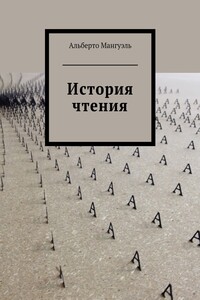
Когда и где впервые возникли буквы и книги? Что такое сладость чтения? Кто научил верблюдов ходить в алфавитном порядке? Хорошо ли красть книги? Правда ли, что за любовь к чтению предавали казни? Является ли чтение страстью, наслаждением, отдохновением и приятным времяпрепровождением? Альберто Мангуэль (р. 1948) — известный издатель, переводчик, редактор и знаток многих языков. Среди персонажей этой увлекательной книги писатели и философы, святые и простые смертные — любители книг и чтения.
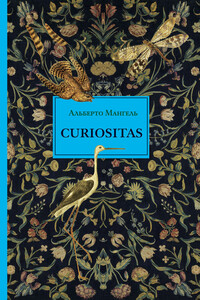
Многие века потребность совершать открытия побуждала людей двигаться вперед. Импульс, выраженный латинским словом CURIOSITAS, заставляет пытливый ум постоянно задавать вопросы, подталкивая к поиску ответов: зачем мы здесь? что всем движет? что потом? Curiositas как «желание знать» – это естественное любопытство, вовлекающее нас в бесконечный и кропотливый процесс познания. По мнению Альберто Мангеля, объяснение многим неясным явлениям можно найти в книгах, на протяжении веков вбиравших все, что люди узнавали об окружающем мире, осознанно или интуитивно.
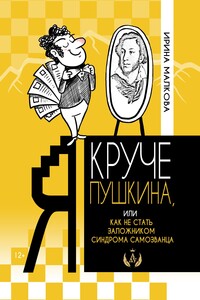
Естественно, что и песни все спеты, сказки рассказаны. В этом мире ни в чем нет нужды. Любое желание исполняется словно по мановению волшебной палочки. Лепота, да и только!.. …И вот вы сидите за своим письменным столом, потягиваете чаек, сочиняете вдохновенную поэму, а потом — раз! — и накатывает страх. А вдруг это никому не нужно? Вдруг я покажу свое творчество людям, а меня осудят? Вдруг не поймут, не примут, отвергнут? Или вдруг завтра на землю упадет комета… И все «вдруг» в один миг потеряют смысл. Но… постойте! Сегодня же Земля еще вертится!
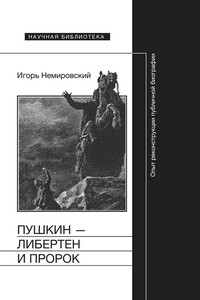
Автор рассматривает произведения А. С. Пушкина как проявления двух противоположных тенденций: либертинажной, направленной на десакрализацию и профанирование существовавших в его время социальных и конфессиональных норм, и профетической, ориентированной на сакрализацию роли поэта как собеседника царя. Одной из главных тем являются отношения Пушкина с обоими царями: императором Александром, которому Пушкин-либертен «подсвистывал до самого гроба», и императором Николаем, адресатом «свободной хвалы» Пушкина-пророка.
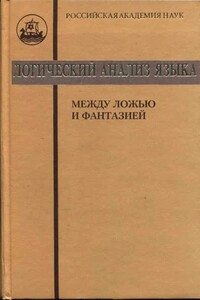
В статье анализируется одна из ключевых характеристик поэтики научной фантастики американской Новой волны — «приключения духа» в иллюзорном, неподлинном мире.

В книге рассказывается история главного героя, который сталкивается с различными проблемами и препятствиями на протяжении всего своего путешествия. По пути он встречает множество второстепенных персонажей, которые играют важные роли в истории. Благодаря опыту главного героя книга исследует такие темы, как любовь, потеря, надежда и стойкость. По мере того, как главный герой преодолевает свои трудности, он усваивает ценные уроки жизни и растет как личность.

В книге рассказывается история главного героя, который сталкивается с различными проблемами и препятствиями на протяжении всего своего путешествия. По пути он встречает множество второстепенных персонажей, которые играют важные роли в истории. Благодаря опыту главного героя книга исследует такие темы, как любовь, потеря, надежда и стойкость. По мере того, как главный герой преодолевает свои трудности, он усваивает ценные уроки жизни и растет как личность.

В книге рассказывается история главного героя, который сталкивается с различными проблемами и препятствиями на протяжении всего своего путешествия. По пути он встречает множество второстепенных персонажей, которые играют важные роли в истории. Благодаря опыту главного героя книга исследует такие темы, как любовь, потеря, надежда и стойкость. По мере того, как главный герой преодолевает свои трудности, он усваивает ценные уроки жизни и растет как личность.
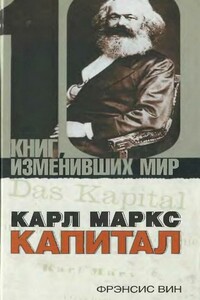
«Капитал» Карла Маркса. Книга, которая произвела настоящий переворот в экономической науке XIX века. Книга, на которую опирались множество революционеров и реформаторов. Однако много ли нам известно о «Капитале» как таковом — основополагающем социально-экономическом труде, не вырванном из контекста своего времени? Почему на тезисы «Капитала» с равным успехом опираются и радикалы, и либералы, и консерваторы? И, наконец, имеет ли «Капитал* Маркса хоть какое-то отношение к постулатам марксизма? Вот лишь немногие из вопросов, на которые отвечает в своей книге известный историк и биограф Фрэнсис Вин.
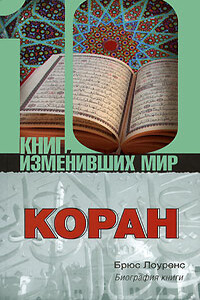
Коран. Священная книга мусульманства, согласно исламской традиции, надиктованная пророку Мухаммеду свыше. Однако равнозначны ли Коран и мусульманство? Какие изменения и толкования претерпел он в течение почти полутора веков? Почему ислам требует, чтобы суры Корана запоминались наизусть? И в чем заключается тайное послание человечеству, скрытое в страницах Корана? Вот лишь немногие из вопросов, на которые отвечает в своей книге Брюс Лоуренс — самый известный европейский исследователь Корана.
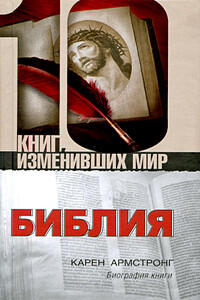
Библия. Книга Книг христианства.Что мы знаем о Библии, об истории её создания и подлинном, древнем её значении? Как трактуют современные учёные библейскую «историю Творения»? Почему идеологический и этический посылы Ветхого и Нового Завета так разнятся друг с другом? Какие изменения претерпела Библия в процессе многочисленных переводов?Вот лишь немногие вопросы, на которые отвечает известный историк и теолог Карен Армстронг…
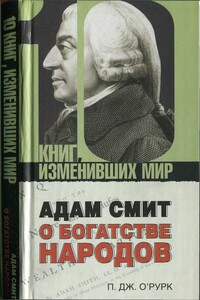
«О богатстве народов» Адама Смита. Книга, изменившая в начале XIX века представления о мировой экономике. Она произвела настоящий эффект разорвавшейся бомбы среди современников — и продолжает служить поводом для оживленных дискуссий даже в наши дни. Ею восхищались, ее осуждали… Почему же теория Адама Смита встретила столь неоднозначное отношение? И почему правоту многих ее тезисов, казавшихся некогда фантастическими, доказало впоследствии время? На эти вопросы дает в своей книге оригинальные и исчерпывающие ответы известный публицист Патрик Дж.